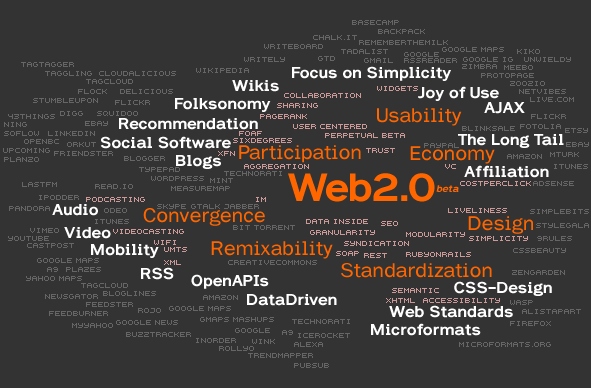Security policy failing Web 2.0 development
Global survey finds concern for security risks and governance issues prevail, particularly in the area of Web 2.0-specific security policy development.


Despite overwhelming belief in the potential benefits of so-called 'Web 2.0' technologies, businesses are still concerned about security risks and governance.
These are the main findings of a recently published report, Enterprise 2.0: The benefits and challenges of adoption, from the Economist Intelligence Unit and KPMG, the consulting firm, based on a global survey of 472 corporate executives.
Major benefits seen by nearly 70 per cent of respondents were improved employee productivity and efficiency; 75 per cent felt Web 2.0 technologies would foster innovation, while 86 per cent see them as having the potential to improve knowledge sharing.
But the report said security and governance fears are holding back adoption of Web 2.0 technology based tools, like wikis, blogs and social networks, in the enterprise.
More than 52 per cent cited protecting and securing critical data as the chief barrier to adoption, where around a quarter see compromised financial and business information as the leading Web 2.0 risk. And over 22 per cent believed Web 2.0 use could increase risk of exposure to data breaches.
It is perhaps then no surprise that security policy development in this area emerged as particularly lacking, given the fact that nearly 36 per cent of businesses represented don't actually measure their return on Web 2.0 use.
Divided by industry, the failure to implement Web 2.0 security policies is most prevalent in consumer goods, with three quarters admitting to failing to do so.
Get the ITPro daily newsletter
Sign up today and you will receive a free copy of our Future Focus 2025 report - the leading guidance on AI, cybersecurity and other IT challenges as per 700+ senior executives
Telecommunications and entertainment, media and publishing industries follow; with around two-thirds from each saying they had plans to implement policies in the next two years. Government and public sector organisations had similar findings.
Technology and financial services fared best: "Like IT companies, financial sector organisations seem well aware of the risks of Web 2.0 and have taken steps to head them off," said the report. They were followed by automotive and real estate/construction industries.
The report predicts that Web 2.0 governance will become clearer in the next two years as widespread ignorance of the technologies improves.
Over 45 per cent admitted a fundamental lack of understanding of how Web 2.0 relates to their business, where more IT executives (55 per cent) said this was the most serious hurdle to adoption compared to half of the general management respondents.
Crispin O'Brien, KPMG chairman of technology said: "The challenge for the technology industry is to communicate these benefits to customers effectively and address the concerns that remain around security and relevance to different industries."
A 25-year veteran enterprise technology expert, Miya Knights applies her deep understanding of technology gained through her journalism career to both her role as a consultant and as director at Retail Technology Magazine, which she helped shape over the past 17 years. Miya was educated at Oxford University, earning a master’s degree in English.
Her role as a journalist has seen her write for many of the leading technology publishers in the UK such as ITPro, TechWeekEurope, CIO UK, Computer Weekly, and also a number of national newspapers including The Times, Independent, and Financial Times.
-
 Should AI PCs be part of your next hardware refresh?
Should AI PCs be part of your next hardware refresh?AI PCs are fast becoming a business staple and a surefire way to future-proof your business
By Bobby Hellard Published
-
 Westcon-Comstor and Vectra AI launch brace of new channel initiatives
Westcon-Comstor and Vectra AI launch brace of new channel initiativesNews Westcon-Comstor and Vectra AI have announced the launch of two new channel growth initiatives focused on the managed security service provider (MSSP) space and AWS Marketplace.
By Daniel Todd Published